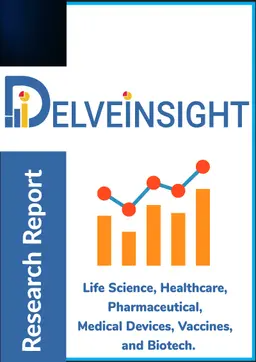
The PCSK9 Inhibitors Market has introduced an important new option for managing cholesterol levels in patients who haven’t found success with traditional approaches. These medications work by targeting a specific protein called PCSK9, which plays a key role in how the liver processes cholesterol. By blocking this protein, these drugs help the liver remove more LDL cholesterol—often called “bad cholesterol”—from the bloodstream. This is particularly valuable for individuals with inherited forms of high cholesterol or those who experience side effects from statin medications.
Research conducted since these medications became available in 2015 has shown consistent results: when added to statin therapy, PCSK9 inhibitors typically reduce LDL cholesterol by 50-60% or more. These reductions are clinically meaningful, translating to fewer heart attacks and strokes, especially among patients who already have cardiovascular disease or carry genetic factors that increase their cholesterol levels.
Market Development and Future Projections
The PCSK9 Inhibitors Market Size has evolved considerably since these products first entered the healthcare marketplace. Initial adoption faced several obstacles: the medications were priced higher than traditional cholesterol drugs, insurance companies imposed strict coverage requirements, and physicians needed to complete extensive paperwork for approval. Over time, however, several positive changes have occurred—prices have decreased, insurance policies have become more accommodating, research has continued to validate effectiveness, and more patients now meet qualification criteria.
Today, the global market for these medications is valued in the billions of dollars, with continued growth expected through the end of this decade and into the next. Industry forecasters estimate annual growth rates between 15% and 25%, though this varies by geographic region and competitive factors. Several underlying trends support this growth: populations are aging and experiencing more cardiovascular disease, physicians are becoming more familiar with prescribing these medications, eligibility guidelines are expanding, and new treatment options are in development—including oral formulations that wouldn’t require injections.
North America currently accounts for approximately half of worldwide sales, with Europe and Asia-Pacific regions following. The United States represents the largest individual country market, benefiting from a sizable population of cardiovascular patients and improving reimbursement policies. Meanwhile, developing nations where cardiovascular disease rates are rising and healthcare systems are advancing offer additional growth potential.
Key Manufacturers and Market Structure
The PCSK9 Inhibitors Companies landscape includes both large pharmaceutical manufacturers and specialized biotechnology firms. Currently, Amgen and the Sanofi/Regeneron collaboration hold leading positions with their injectable antibody medications, which were the first in this therapeutic class and remain the most widely prescribed globally.
Amgen markets evolocumab under the brand name Repatha, which received approval in 2015. The company has conducted extensive clinical trials demonstrating that Repatha reduces the risk of heart attacks, strokes, and cardiovascular deaths, not just cholesterol numbers. The medication is approved for treating various forms of familial hypercholesterolemia and for patients with cardiovascular disease who need additional cholesterol reduction beyond what statins provide.
Sanofi and Regeneron jointly market alirocumab, sold as Praluent, which offers similar clinical benefits and has received comparable regulatory approvals. The partnership between these companies has enabled broad distribution and ongoing clinical research.
More recently, Novartis acquired a company developing inclisiran (Leqvio), which represents a different technological approach. Inclisiran uses small interfering RNA (siRNA) technology and requires injections only twice per year, compared to twice monthly for the antibody medications. This less frequent dosing schedule may help patients maintain their treatment regimen more easily, and the product has gained approval in several countries.
Other companies are working on oral medications that would function similarly to these injectables but in pill form, potentially offering greater convenience. Some research groups are also exploring gene-editing approaches that might provide long-lasting or permanent cholesterol reduction, though these technologies are still in early research phases.
Patient Groups and Medical Uses
The PCSK9 Inhibitors Drugs Market serves several distinct patient populations. One major group includes individuals with familial hypercholesterolemia—a genetic condition that causes very high cholesterol levels from birth and significantly increases cardiovascular risk. For these patients, PCSK9 inhibitors often become necessary when statin medications alone cannot adequately control cholesterol.
Another important group consists of patients who have already experienced a heart attack or stroke and need intensive cholesterol lowering to reduce their risk of future events. Medical guidelines increasingly recommend considering PCSK9 inhibitors for such high-risk patients when they cannot reach their cholesterol goals with statin therapy. Additionally, patients who develop muscle-related problems with statins may benefit from PCSK9 inhibitors since they work through a different biological mechanism.
Current Challenges and Evolving Landscape
Despite proven effectiveness in clinical studies, the PCSK9 Inhibitors Drugs Market continues to navigate certain challenges, including discussions about cost relative to health benefits, some remaining insurance restrictions, and the fact that current products require injections. However, several positive trends are emerging: ongoing negotiations are making these medications more affordable, accumulating evidence from everyday clinical use continues to support their cardiovascular benefits, and newer products with less frequent dosing requirements are improving convenience for patients.
Latest reports offered by Delveinsight
Advanced Cancer Pain Management Market | Bronchiolitis Obliterans Syndrome (BOS) Market | Charcot Marie Tooth Disease Market | COPD Market | Guillain-Barré Syndrome Market | JAK Inhibitor Market | Mayus Kinase JAK Inhibitors Market | Myofascial Pain Syndrome Market | Neurostimulation Devices Market | Orthopedic Trauma Devices Market | Parkinson Disease Market | Acute on Chronic Liver Failure (ACLF) Market | Airway Stent Market | Allergic Rhinitis Market | Anesthesia Workstation Machines Market | Artificial Kidney Market | Atrial Fibrillation Market | Bile Duct Neoplasm Market | Bone Neoplasms Market | Bronchial Neoplasm Market
About Delveinsight
DelveInsight is a leading healthcare-focused market research and consulting firm that provides clients with high-quality market intelligence and analysis to support informed business decisions. With a team of experienced industry experts and a deep understanding of the life sciences and healthcare sectors, we offer customized research solutions and insights to clients across the globe. Connect with us to get high-quality, accurate, and real-time intelligence to stay ahead of the growth curve.
Contact Us
Kanishk
kkumar@delveinsight.com














